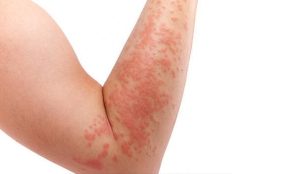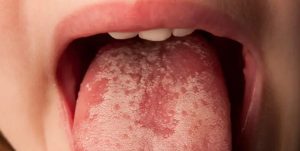
Precautions to take antibiotics
The word ' antibiotic' is gotten from the Greek words 'against' and 'profiles'. Anti means opposite and bios means life. That is, it acts against living microorganisms. Antibiotics are utilized to control and fix illnesses that are generally brought about by bacterial contaminations. That is why antibiotics are effective against viral diseases. Everyone hears the practice of antibacterials but many are not properly familiar with it. From today's discussion, we will know about antibiotics in detail along with side effects related to them.
What are antibiotics?

Antibiotic agents are drugs that kill microbes, growths, or parasites or kill their poisons. Antibiotics are a widely used successful medicine in various bacterial diseases.
Now let's talk about antimicrobial resistance.
Asthmatic Symptoms and Causes
What is antibiotic resistance?
Antibiotic opposition alludes to the deficiency or adequacy of an anti-toxin, for example assuming that a bacterium creates protection from a medication to which the bacterium was once delicate (meaning the medication might have killed the bacterium's harmfulness) yet is presently not successful against that bacterium. If an organism becomes antimicrobial resistant, it is simply called drug resistance. This means, then no common medicine can work on that germ. Now the question naturally arises as to why it becomes resistant. When antibacterials enter our body, various germs or viruses produce antibodies against them, which means that germs develop resistance against antibiotics. As a result, they stop working temporarily and our body starts to heal. But germs or viruses remain in the body through antibodies.
Now if we stop taking antibacterials in that situation then the germs come back and cause disease again. But the problem is that if you take that antibiotic again now, it won't work anymore. Do you know the reason? That's why the previous antibodies remain in your body. Then the bacteria develop resistance against the antibiotic from the beginning, then the antibacterials of that group no longer work. Even those antibiotics will never work in your body again. So, what we have to do is whenever antibiotics are given, the full course must be completed.
9 tips on causes, treatment and prevention of eczema
Do you know what the damage will be if these bacteria become drug resistant?
- Commonly used antibiotics will no longer work on them.
- New drugs have to be developed which is a threat to long-term processes and the whole of medicine.
- Treatment will become expensive and complex, often beyond the reach of the general public.
- Treatment will not be effective, the patient may remain infected for a long time, and may easily infect others.
- Major surgeries, and organ transplants which are now easy, will become complicated and risky.
Possible side effects:
Diarrhea:

Did you know that antibiotics can cause diarrhea? There are both good and bad bacteria in our body system. Antibiotics not only destroy bad bacteria but also harm some of the good bacteria and when the balance of good and bad bacteria in our gastrointestinal tract is upset, antibiotic-associated diarrhea occurs.
Learn about the nutritional value of 9 winter vegetables!
Nausea:

Nausea is a typical result of antibacterials. It is described by a sensation of uneasiness or nausea in the stomach, frequently joined by a desire to upchuck. Antibiotics can disrupt the balance of bacteria in the digestive system, leading to gastrointestinal disturbances and triggering nausea. While not every person encounters this secondary effect, it is critical to illuminate your medical care supplier if you foster queasiness while taking anti-infection agents, as they might have to change your prescription or offer extra help.
Allergic reactions:

Allergic reactions are potential side effects of antibiotics. These responses can go from gentle to serious and may appear as hives, tingling, rash, expanding of the face or throat, trouble breathing, or hypersensitivity, a hazardous condition. Aversions to explicit antibacterials like penicillin are notable, however, unfavorably susceptible responses can happen with any anti-infection. If you experience any indications of an unfavorably susceptible response while taking anti-infection agents, it is critical to look for guaranteed clinical thoughtfulness to forestall further difficulties.
White patch on the tongue:

The presence of a white patch on the tongue is a potential side effect of antibiotics. This condition is known as oral thrush or oral candidiasis. Antibiotics can disturb the normal equilibrium of microorganisms in the mouth, permitting an abundance of the organism Candida albicans, which prompts the development of white patches on the tongue and other oral surfaces. If you notice a white patch on your tongue while taking antibacterials, it is advisable to consult your healthcare provider for proper evaluation and treatment.
15 great tips for coffee to protect health!
What women should know before taking antibiotics:
In addition to the common side effects, taking antibiotics for a long time can cause some other problems in girls. Which is very important for every woman to know about.
Vaginal itching or discharge:
Antibiotics can cause vaginal yeast infections. Because antibacterials also destroy the bacteria in the vagina. As a result, the yeasts multiply rapidly and the yeast cells invade the vaginal tissue. One or all of the following symptoms are usually present. Itching, burning, pain during intercourse, discharge. If this happens, consult a doctor immediately.
Decreased effectiveness of birth control pills:
If you take too much of an antibiotic such as rifampin or griseofulvin, it has been known to reduce the effectiveness of birth control pills. It releases a hormone that signals the liver to break down estrogen, and estrogen, an ingredient in birth control pills, prevents ovulation.
Excess application of anything is not good. Especially in medicine. Seek the advice of an experienced person if you experience physical problems. Do not go to your doctor.
Do you know the causes, risks, and control of 3 types of cholesterol in the blood?
Read More Articles
Instagram Twitter Facebook LinkedIn Quora Google News
Our Other Engagements:


https://livewithgreen.com/precautions-before-taking-antibiotics/
.jpg)